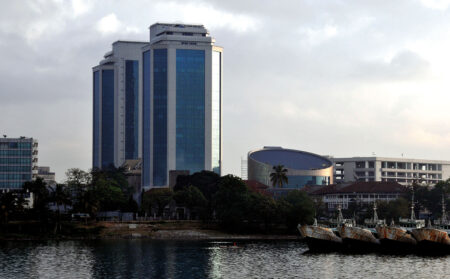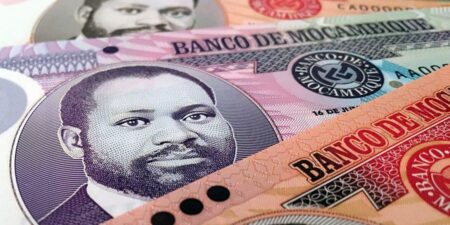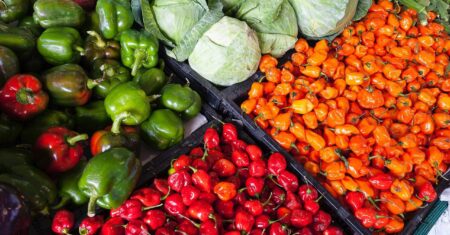- Abu Dhabi radiates optimism as over 300 startups join AIM Congress 2024
- TLcom Capital Raises $154 million in Funding to Boost Its African Growth
- Africa’s $824Bn debt, resource-backed opaque loans slowing growth — AfDB
- LB Investment brings $1.2 trillion portfolio display to AIM Congress spotlight
- AmCham Summit kicks off, setting course for robust future of US-East Africa trade ties
- Why the UN is raising the red flag on the UK-Rwanda asylum treaty
- Portugal’s Galp Energia projects 10 billion barrels in Namibia’s new oil find
- Wärtsilä Energy offers tips on how Africa can navigate energy transition and grid reliability
Browsing: inflation
- Zanzibar has entered into a deal with Belgium to attract more tourists to the East African coastal Island.
- The number of tourist arrivals in Tanzania is projected to increase in 2023. The country saw 62.7 per cent jump in new arrivals between January and July last year.
- Tanzania received a total of 100,600 tourists from USA in 2022 followed closely by France that was the source of 100,371 holidaymakers.
Zanzibar’s tourism development initiative under its Blue Economy agenda is starting to pay dividend with the isles setting its sights on attracting tourists from Belgium.
Isle’s President Hussein Mwinyi recently met with Belgium’s Ambassador to Tanzania Peter Huyghebaert, and unveiled ongoing improvement of infrastructure in Zanzibar to improve tourists’ experience.
President Mwinyi cited infrastructure improvements such as airports and roads, access to power and water as well as the construction of new hotels by the private sector.
“We have been working …
Currently, Africa is over-exposed to the impact of the US Dollar. Thus, African nations must either act individually or together to mitigate these effects. Dollar strength bursts are cyclical. Therefore, there should be enough time to implement efforts before the next one occurs. African governments have recognized the harm done in the previous year and should work round the clock to find a lasting solution.…
- Nigeria, South Africa, Egypt, Morocco, and Kenya are all expected to raise borrowing costs within the next two weeks
- In contrast, monetary authorities in countries such as Ghana and Angola, where inflation is on a downward trend, are expected to maintain current rate
- US monetary tightening could slow due to banking turmoil, weakening demand for the dollar.
Major central banks in Africa are preparing to raise interest rates in order to combat persistent inflation and prevent a sell-off in their assets exacerbated by an uncertain financial system following the recent collapse of US lender Silicon Valley Bank and stress at Credit Suisse Group AG.
Nigeria, South Africa, Egypt, Morocco, and Kenya are all expected to raise borrowing costs within the next two weeks.
In contrast, monetary authorities in countries such as Ghana and Angola, where inflation is on a downward trend, are expected to maintain current rates. Six smaller African
- The increased credit to the private sector is associated with positive growth-focused policies.
- The data shows that there was robust private credit growth except for the tourism industry which is still coming out of the post-pandemic period.
- Overall lending rates dropped slightly from 16.8 percent in August 2021 to 16.1 percent in August last year.
Tanzania is pushing for private sector growth evident in increased credit to the private sector, according to the World Bank.
In the most recent World Bank report on Tanzania’s Economic Update, the growth rate of credit to the private sector increased from 3.2 percent in August 2021 to 20.7 percent in August 2022 and is expected to grow further this year.
The increased credit to the private sector is associated with positive growth-focused policies designed to support private sector recovery in a post-pandemic and slowing global global growth environment.
The development comes as the country …
At the close of 2022, between September to December, food prices soared around the world and with no signs of this abating in 2023, countries in Africa will have to move with speed to mitigate a looming food crisis.
Food inflation is particularly pronounced and severe in low-income and middle-income countries. According to most recent sector reports, up to 94.1% of low-income countries around the world suffer food inflation.
With increasing food prices, the cost of living is increasing, and it is no better in lower-middle-income countries of which 92.9% are contending with food inflation.
Also Read: Starvation, death threaten Horn of Africa stability
Even the upper-middle-income countries are also facing food inflation with 89% reporting unprecedented double-digit inflation.
According to the International Monetary Fund (IMF), maize prices in December 2022 went up by 27% while wheat shot up 13% higher compared to the same period in 2021.
As we …
Ghana finds itself in the classic emerging market trap. This comes from owing too much in someone else’s currency when the global economic tide turns. One ought not to read too much into an emerging economy getting creative with money or to confuse the confiscation of private assets with a more conventional process of fiscal retrenchment that would gain IMF approval. If the plan succeeds, Ghana may have saved itself from an economic meltdown, especially in a period widely considered as economic turmoil, per the World Bank’s analysis of the 2023 economy.…
Over the past decade, African countries have accumulated external debt at a faster pace. The countries have capitalized on abundant, low-cost international credit for fiscal and balance-of-payments funding to help drive development plans.
Africa’s total external debt, accrued by both the private and public sectors, owed to foreign lenders, has surpassed $1 trillion. The related annual debt servicing costs broke through the $100 billion threshold for the first time in 2021.…
- The Monetary Policy Committee of the Bank of Mozambique (CPMO) has decided to keep its benchmark interest rate unchanged at 17.25 per cent.
- This decision was based on the prevalence of high risks and uncertainties surrounding inflation forecasts.
- Despite the uncertainties and risks, the CPMO remains optimistic that inflation will continue to fall in the medium term.
The Monetary Policy Committee of the Bank of Mozambique (CPMO), meeting in Maputo on Wednesday, decided to keep its benchmark interest rate, the Monetary Policy Interest Rate (MIMO), unchanged at 17.25 per cent. This is the rate used by the central bank in its interventions on the interbank money market to regulate liquidity. The rate rose from 15.25 to 17.25 per cent last September.
In a press statement, the CPMO said the decision not to alter interest rates was due “to the prevalence of the high risks and uncertainties underlying the forecasts for …
There appears to be a consensus that the world is finally turning its back on the US dollar. There are simmering shifts within the global monetary system. The shift becomes ever more apparent, best described as de-dollarisation.
The world is searching for alternatives to the US dollar, finding them more often. Thus, moving away from the dollar can no longer be stopped. For instance, early this year, Indonesia reiterated it would promote local currency settlement (LCS) in cross-border trade and investment to reduce dependence on the US dollar.…
According to the Central Bank of West African States (BCEAO), growth should accelerate in the WAEMU economic region in the medium term. The increased production in the tertiary and secondary sectors remains crucial. These sectors should benefit from controlling the current health crisis in the Union and the continued implementation of the NDPs.
Growth in the Union is expected to drop from 6 per cent in 2021 to 5.9 per cent in 2022 before settling at 7.2 per cent in 2023. The contribution to growth from the tertiary sector should stand at 3.5 per cent in 2023, up by 0.3 points compared to 2022. The contribution of the secondary sector should grow by 0.9 points between the two years to settle at 2.6 per cent in 2023.…














